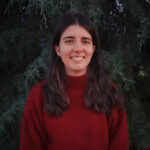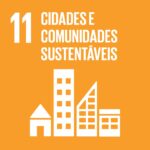
5 sustainable catering services
Whether it’s a small party or a big event. At a wedding or company team building activity. Food brings people together at the table and
We didn't find any happenings mapped to your criteria.
Try the traditional search to find articles not yet mapped with RUA.
We didn't find any happenings mapped to your criteria.
Try the traditional search to find articles not yet mapped with RUA.
We didn't find any happenings mapped to your criteria.
Try the traditional search to find articles not yet mapped with RUA.
We didn't find any happenings mapped to your criteria.
Try the traditional search to find articles not yet mapped with RUA.
The afforestation method accelerates their growth and helps in the resilience of cities to climate change.
A mini forest is being created at Casal Vistoso Urban Park, in Areeiro, being already the third of its kind in Lisbon. The initiative comes from the non-profit organization Urbem in partnership with the Lisbon City Hall. The process
used allows the development of natural forests in small spaces
(such as urban parks) relatively faster than traditional afforestation methods. The first action takes place next weekend, on January 13, 14 and 15.
Based on the method of Japanese botanist Akira Miyawaki, this technique helps cities become more resilient to climate change by planting
dense native trees, shrubs and grasses and the creation of ponds and wildflower meadows, which contribute to water infiltration and the strengthening of biodiversity in urban centers.
After soil preparation, which began in December, planting is now underway. After this stage, the maintenance and monitoring phase follows, in which all the species planted are mapped and a follow-up of their
survival. Within three years, it is estimated that the ecosystem generated will be self-sustaining and capable of absorbing more carbon than a conventional forest. At any stage, the association invites the community to come together and engage with nature.
Anyone can participate for free and without registration (you can join Urbem’s group on the Meetup platform), just bring gloves (gardening or kitchen) and appropriate footwear and show up between 10am-1pm and 2pm-5pm.


Whether it’s a small party or a big event. At a wedding or company team building activity. Food brings people together at the table and

In the following list there are courses for both busy and less busy schedules and for all tastes. Do you like gardening or makeup? We

The contests and science fairs held in schools around the world challenge youngsters to look for and develop solutions to problems that affect our planet.

This article addresses an action that promotes change towards more inclusive, safe, resilient and sustainable cities and communities, helping toreduce the adverse environmental impact of cities.
 To discover businesses that are actively working to contribute to this Sustainable Development Goal, click here.
To discover businesses that are actively working to contribute to this Sustainable Development Goal, click here. To read news, interviews or tips related to this Goal, click here.
To read news, interviews or tips related to this Goal, click here.Esta publicação também está disponível em:
![]() Português (Portuguese (Portugal))
Português (Portuguese (Portugal))

